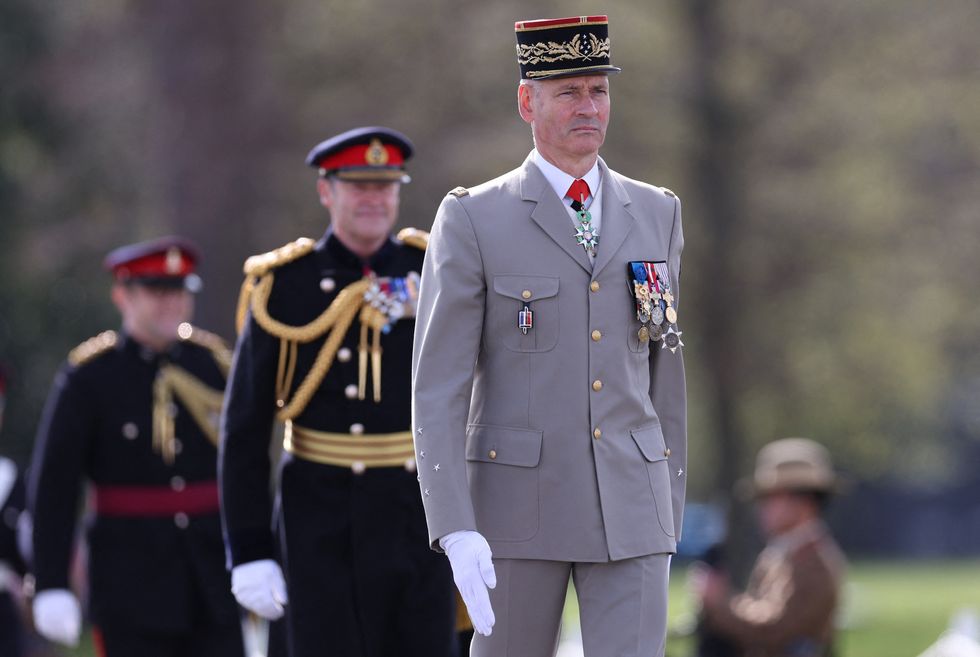European way of life under threat from Nato’s enemies says German general as he warns EU is falling behind in deadly drone race
The head of the German army has issued a stark warning that the European way of life is under threat from Nato’s adversaries, as concerns mount over the West falling behind in military technology.
The warning comes amid growing anxiety about Europe’s defensive capabilities, as Ukraine begins to lose ground to Russia in the east.
General Alfons Mais’s comments at the Berlin Security Conference have reflected increasing alarm among military leaders about Europe’s preparedness for modern warfare.
The situation is particularly acute in the realm of drone technology, where poorer nations and even terrorist groups are gaining significant advantages over Western forces.

General Mais emphasised the need for frank discussions with the public about increased defence spending to ensure future security.
“It’s our task to convey the message that the threat is real,” he told the Berlin Security Conference, adding that “our way of life is in danger.”
The German army chief stressed that Europe must take responsibility for its own protection, warning: “We cannot outsource our security to others. We have to tell this to the population as well, because it will not be free.”
French army chief General Pierre Schill has expressed deep concerns about the rapid evolution of military technology beyond Western control, warning that less wealthy adversaries are now gaining technological advantages over Western forces.
“What we have before our eyes now is that technological capabilities [mean] some enemies that are less rich than we are are overtaking us,” Schill said.
LATEST DEVELOPMENTS:
- Storm Bert wreaks havoc as man dies on A34 after tree falls on car
- Nigel Farage just issued stern warning over China but is it valid?
- REVEALED: Britain’s ‘below the radar’ plan to help Ukraine defeat Putin without sending a single missile
He specifically highlighted how terrorist groups have acquired drone and cyber capabilities that can threaten Western forces.
The situation in Ukraine demonstrates this technological shift, with reports suggesting drones have caused up to 90 per cent of casualties in some battles.
Ukraine alone is estimated to be using 10,000 drones monthly in its operations.
Germany has revealed it is sending Ukraine 4,000 “autonomous” drones from a previously secret arms industry programme.
These drones, developed by technology company Helsing, can function even when jammers and electronic warfare tools block remote control or GPS.
Gundbert Scherf, former German defence ministry official and current head of Helsing, said the drones can accelerate the “artillery kill chain” significantly.

“Russia knows very well that the countermeasure to our systems and our way of fighting is electronic warfare. Electronic warfare is everywhere on the front line [in Ukraine],” Scherf told the conference.
The drones can survey up to ten times more ground than a human pilot.
The ethical implications of AI-equipped drones have sparked significant debate, with Elon Musk and 115 other technologists signing a petition against their use.
France has committed to not using fully AI-controlled strike drones, although its defence ministry sees benefits in autonomous drones with human oversight.
However, German defence manufacturer Vincorion’s executive Sascha Brüning has raised practical concerns about competitive disadvantage, asking: “If [the technology] is a game-changer the question is not how we deal with it, it is how will our opponents deal with it?”
General Schill warned that some countries would bypass ethical restrictions, potentially leaving those with moral constraints at a disadvantage.

